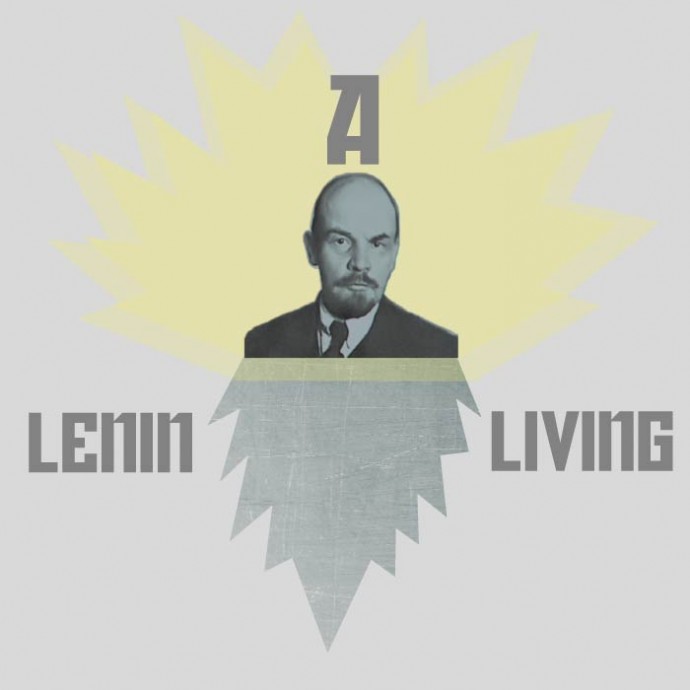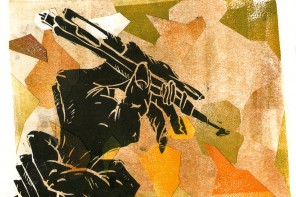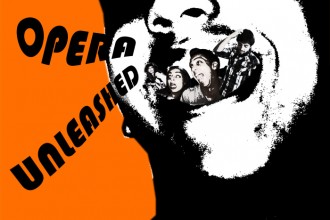For many, Vladimir Ilyich Ulyanov, a.k.a Lenin, stands as the very epitome of everything discredited in twentieth-century politics, the father of a failed political movement and a dinosaur of a bygone age. Not so, argues one political and environmental activist. We talk to the ardent politico about the man behind the beard, bald-head and Bolshevism, and consider whether what the world really needs now is Leninism.
The first thing that strikes me about Lenin is perhaps the most obvious: Lenin made history. He worked under fucked up circumstances, in a country that was arguably the worst possible site for successful revolution, and yet was able to see the potential for serious social change. He asked, “What is to be done?” and then he actually did it.
I am a Leninist. But not in the same way as many who use Lenin’s name or parade his face on their banners. Well, what can I say? Great thinkers like Lenin don’t always get the following they deserve. Most so-called ‘Leninist’ groups are little more than nostalgia clubs, as static and stuffy as his mausoleum. They stick rigidly to some ‘pure’ doctrine of Lenin stripped of all relevant context and any real understanding of the reality of the struggles of the twenty-first century. These people all too often cast Lenin as some historically exact example to follow, as the developer of some step-by-step guide to making revolution, as a recipe rather than a series of reflections. This is indeed pathetic.
The same goes for many of Lenin’s present day critics. Very often their arguments are bloody silly. They assume that Lenin provided a single fixed canon and judge his actions and ideas from a position of hindsight. It is very easy to look back and draw a black and white picture of Lenin as an evil, authoritarian, proto-Stalin. They choose to forget that Lenin was always working in moments of great conflict, within astronomically complex struggles in which the debate was not some academic exercise but rather life and death decisions about what is to be done. They arrogantly attack Lenin’s writings, whilst taking them totally out of context, childishly dismissing the specific nature of the different moments in which he intervened. In this way Lenin’s detractors side step an honest evaluation of the concrete questions and tactics Lenin was constantly raising.
My reading and understanding of Lenin’s writing hinges on the idea that he was commenting on, and acting in, highly specific historical moments. There are unique situations in a given political movement’s own history. If you actually read Lenin’s writings, rather than relying on some doctrinaire commentary or lame hagiography, I don’t think you can feel anything other than amazement at the breadth and depth of his sharp analysis. Here you have a revolutionary, who, at every step questions the actually existing movements, who weighs up tactical options and forms a position. That is perhaps the single most fascinating thing about Lenin, he is always feeling for that one point where you actually have the leverage to fundamentally change things – the specific moment in which to act. This is why, despite its internal continuity, you can never fix Lenin’s theory down, as different moments saw him taking very different positions.
I’m aware that you cannot wipe away the question of Lenin as a leader of the Soviet Union. The political project he embarked upon ended in failure in many ways and resulted in crimes beyond comprehension. Nevertheless, it is important not to lose sense of history, of just how fucked up the situation was, or to dismiss the importance of what he tried to do. For one thing Lenin died in 1924, having taken power only to see the failure of successful world revolution and an intense civil war. Lenin’s time at the ‘top’ was very short and despite the horrors of this time the situation was still open and there was no inevitability to the slide to the horror of Stalin. The propaganda that resulted from Stalin’s dictatorship distorted Lenin’s legacy to serve the political ambitions of Stalin and bourgeois historians contributee to this by, in turn, presenting Lenin as some embryonic Stalin. Between these two forces the true relevance of Lenin as both thinker and revolutionary were all but lost. Yet the history of Trotsky and the Left-Opposition alone should serve as a strong reminder that history does not proceed in predetermined linear narratives. As Victor Serge put it: “It is often said that ‘the germ of all Stalinism was in Bolshevism from the beginning.” Well, I have no objection. Only, Bolshevism also contained many other germs, a mass of other germs, and those who lived through the enthusiasm of the first years of the first victorious socialist revolution ought not to forget it. To judge the living man by the death germs which the autopsy reveals in the corpse – and which he may have carried in him since his birth – is that sensible?” To which I answer, no Victor, not very sensible at all. Furthermore there is a lack of objectivity when it comes to the horrors of the Civil War. All too often they are presented as a brutally calculated set of decisions that would have otherwise been avoided had the revolution not occurred, whereas the events of the entire First World War appear as some tragic accident.
I like to say that one can only be a true Leninist in practice, rather than belief. Lenin challenges us to always consider politics as a matter of conflicts and contradictions, to constantly ask: Where are the inspiring movements and forces that drive forward class struggle and mobilise new activists? Which of the many topics debated today has the potential to become a leverage point to change this system? This alone is a dynamic and enriching methodology. Lenin made me abandon the idea that any given struggle, be it social, environmental or civil, is pure. That people who hold certain, apparently progressive agendas may at the same time perpetuate the problems they claim to address. In this way Lenin challenges us to seriously consider organisation and tactics within dramatically changing contexts. Understanding that this world is fucking shit does not imply that things are going to change. Change requires human beings to concretely throw their minds and bodies into the struggle, to force change. This highlights again one of the greatest lessons that arise from Lenin, that the point is not merely to analyse or present some perfect theory for the situation, but also secure a position and drive it forward. Seize the moment and act, even if you make mistakes. In short, Lenin taught me never to become some naive hippie, a lesson that should resonate with anyone who is truly passionate about changing the world.







